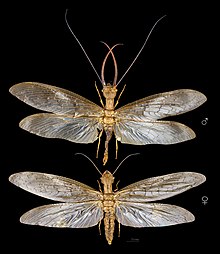
Chusquea is a genus of evergreen bamboos in the grass family. Most of them are native to mountain habitats in Latin America, from Mexico to southern Chile and Argentina.

Pouteria is a genus of flowering trees in the gutta-percha family, Sapotaceae. The genus is widespread throughout the tropical Americas, with outlier species in Cameroon and Malesia. It includes the canistel, the mamey sapote, and the lucuma. Commonly, this genus is known as pouteria trees, or in some cases, eggfruits.

Micrathena, known as spiny orbweavers, is a genus of orb-weaver spiders first described by Carl Jakob Sundevall in 1833. Micrathena contains more than a hundred species, most of them Neotropical woodland-dwelling species. The name is derived from the Greek "micro", meaning "small", and the goddess Athena.
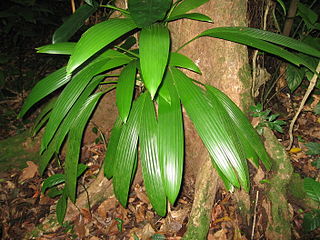
Asplundia is a genus of plants belonging to the family Cyclanthaceae. They are distributed in the Neotropical realm from southern Mexico to southern Brazil.

Aegiphila is a genus of flowering plants in the mint family, Lamiaceae, first described in 1763. It was formerly classified in the Verbenaceae. It is native to Mexico, Central America, South America, the West Indies, and Florida.

Myscelus is a Neotropical genus of skippers in the family Hesperiidae.

Ateuchus is a genus of some 100 species of New World scarab beetles (Scarabaeidae) in the subfamily Scarabaeinae. They are found mainly in the Neotropics.

Chomelia is a genus of flowering plants in the family Rubiaceae. It is native to Mexico, Central America, the West Indies, and much of South America as far south as Argentina.

Oreodera is a genus of long-horned beetles in the family Cerambycidae. Oreodera is in the subfamily Lamiinae, the flat-faced longhorns. There are more than 100 described species in Oreodera, found in Central and South America.

Pelidnota is a genus of beetles of the family Scarabaeidae. There are more than 180 described species in Pelidnota, found in the Neotropics.
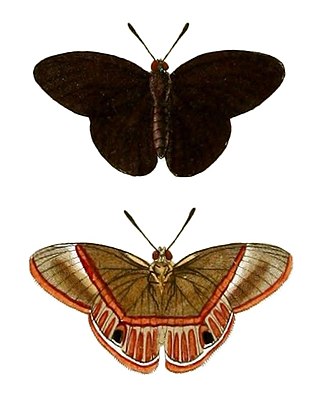
Euselasia is a genus of butterflies in the family Riodinidae. They are present only in the Neotropical realm. The genus was erected by Jacob Hübner in 1819.
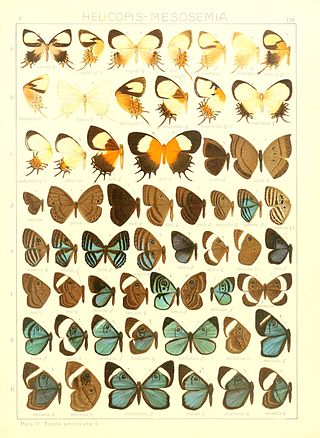
Mesosemia is a genus in the butterfly family Riodinidae present only in the Neotropical realm.
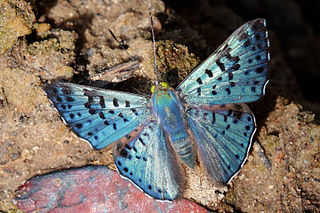
Lasaia agesilas, the glittering sapphire, black-patch bluemark or Narses metalmark is a metalmark butterfly. The species was first described by Pierre André Latreille in 1809. It is native to Central America and the north of South America. It ranges from Costa Rica, Panama, Venezuela, Trinidad, Colombia, Ecuador, Peru, Bolivia, Guyana, Argentina, to the Brazilian Amazon.

Mangora is a genus of orb-weaver spiders first described by O. Pickard-Cambridge in 1889.
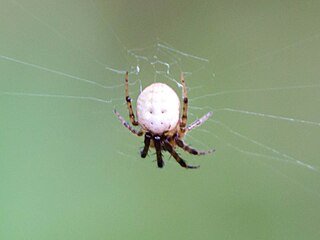
Metazygia is a genus of orb-weaver spiders first described by F. O. Pickard-Cambridge in 1904. They physically resemble members of Nuctenea, but they do not have fine setae on the carapace.
Corydalus affinis is a species of dobsonfly in the genus Corydalus. It is found in Argentina, Bolivia, Brazil, Colombia, Ecuador, French Guiana, Guyana, Paraguay, Peru, and Venezuela. It is found mainly in Amazonian lowlands. Forewing length ranges from 32-58 millimeters, with the females slightly larger than the males.
